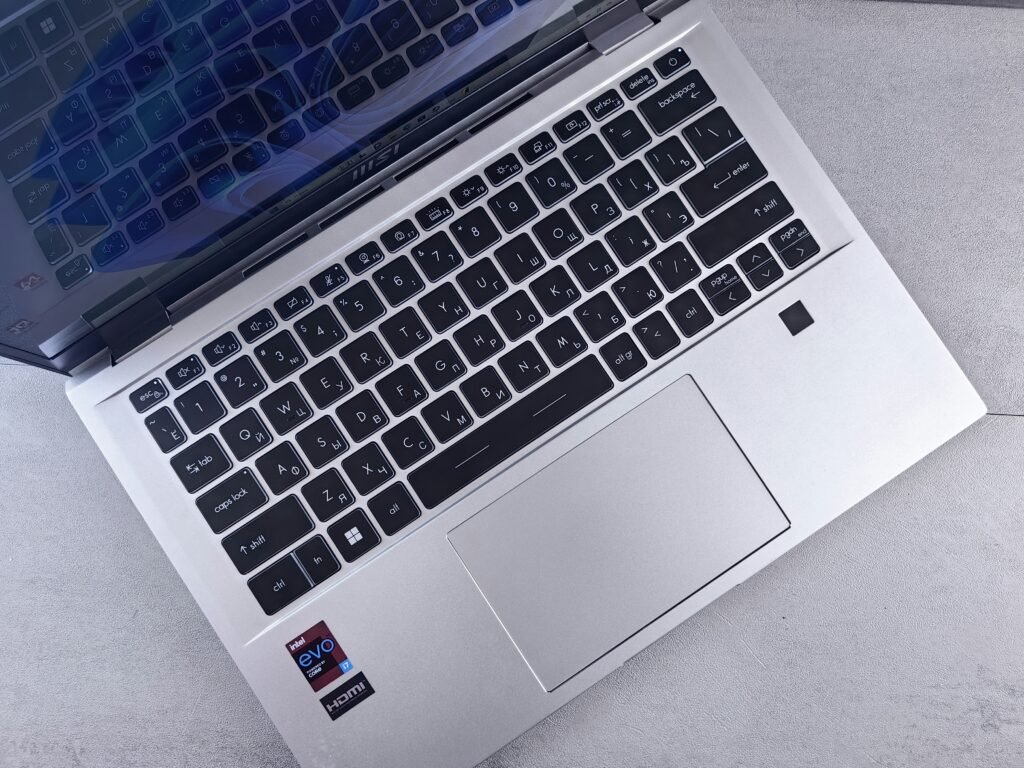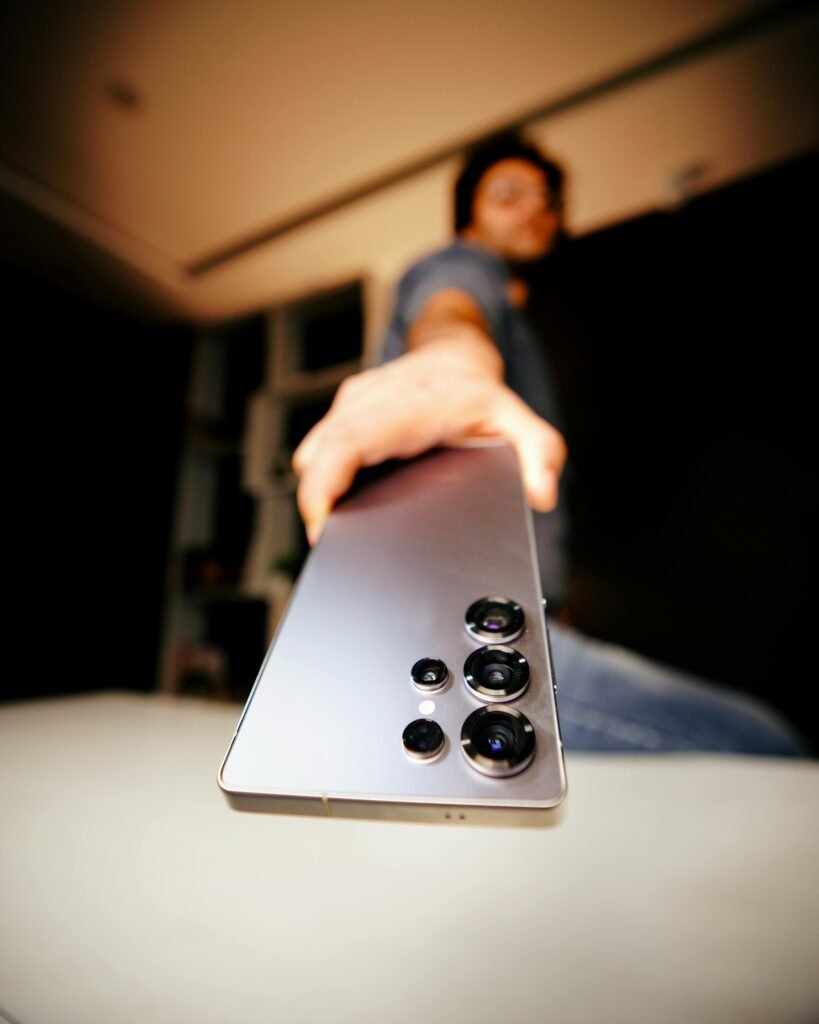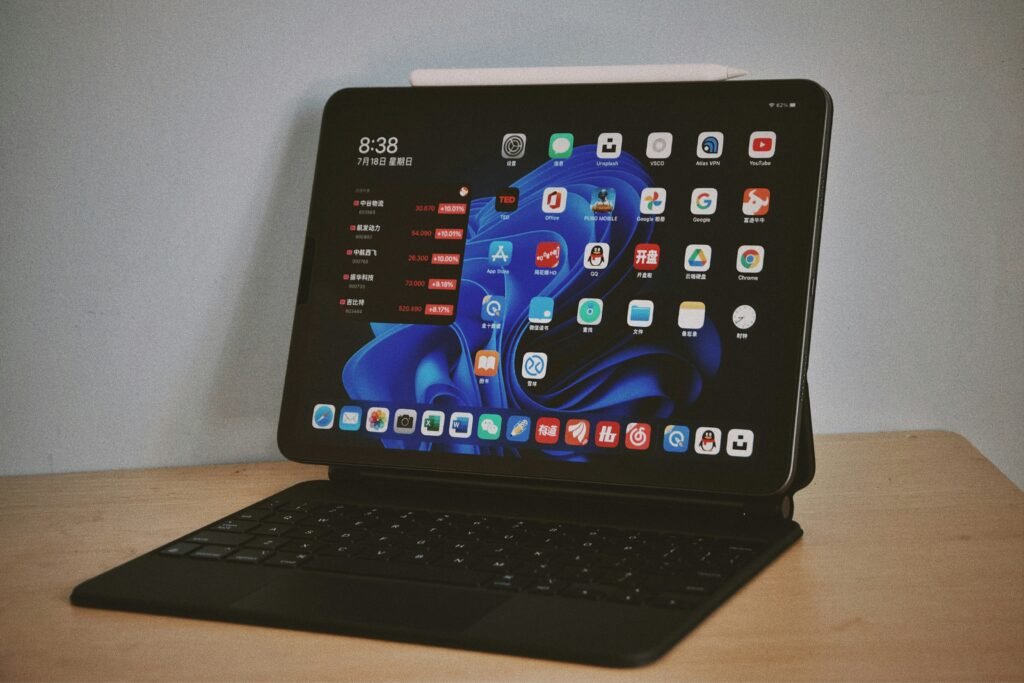
Introduction to Smart Laptops
The advent of smart laptops marks a significant evolution in portable computing, distinguishing them from traditional laptops through their enhanced functionality, connectivity, and user experience. Unlike conventional laptops that primarily serve as productivity tools, smart laptops incorporate advanced features that cater to the demands of modern users, blending portability with innovation. These devices come equipped with intelligent capabilities, such as enhanced artificial intelligence (AI), direct cloud integration, and improved battery life, thus redefining what users expect from their computing experience.
The journey to smart laptops has been gradual, with several technological advancements paving the way. Beginning with the emergence of laptops in the 1980s, the focus was on making computers more accessible and portable. Over the decades, improvements in processing power, display technology, and battery efficiency have transformed these machines from bulky devices into sleek, lightweight models. The introduction of touchscreens and hybrid designs integrating tablet functionality has further propelled innovation, leading to the development of smart laptops. This modern breed of laptops reflects a shift in user needs, where versatility and seamless integration of digital services become paramount.
This blog post will explore the main themes surrounding smart laptops, including their key features, the role of AI, and the implications for both individuals and businesses. As technology continues to evolve, understanding the trajectory and potential of smart laptops is essential for users looking to stay ahead in a rapidly changing digital landscape. The focus will be on how these devices can enhance productivity, provide greater connectivity, and offer smarter solutions that align with the current needs of society, paving the way for future advancements in the realm of computing.
Key Features of Smart Laptops
Smart laptops represent a significant leap forward in technology, driven by advanced artificial intelligence (AI) integration, enhanced connectivity options, and intuitive user interfaces. These features are meticulously designed to augment user experience and significantly enhance productivity in both personal and professional environments.
One of the standout features of smart laptops is their incorporation of advanced AI. This technology enables devices to learn user preferences and behavior patterns over time. For instance, smart laptops may optimize battery life based on usage habits, recommend applications tailored to user needs, or even provide contextually relevant information during presentations. Such intelligent functionalities streamline workflow, allowing users to focus on high-priority tasks without being bogged down by repetitive actions.
Enhanced connectivity is another hallmark of smart laptops. With the inclusion of 5G technology and robust Wi-Fi advancements, these devices ensure a seamless online experience. The ability to connect to high-speed internet easily allows users to transfer large files efficiently, participate in video conferences without interruptions, and collaborate in real-time, regardless of geographic boundaries. This level of connectivity empowers teams to work together more effectively, fostering a dynamic work environment.
Intuitive user interfaces further enrich the overall experience offered by smart laptops. These interfaces often incorporate gesture controls, voice recognition, and touch-sensitive screens, making navigation effortless. Moreover, customization options allow users to tailor their experience according to individual preferences, contributing to a more personalized and engaging computing experience. The amalgamation of these innovative features helps users feel more connected to their devices, ultimately driving higher productivity levels.
Overall, the unique features embedded in smart laptops enhance the user experience significantly, allowing individuals to utilize their devices in smarter and more efficient ways, thus transforming the landscape of personal computing.
Design and Aesthetics
The advent of smart laptops has redefined traditional notions of design and aesthetics in computing devices. Manufacturers have increasingly prioritized not only functionality but also the visual appeal and ergonomic comfort of their products. The materials used in these devices have evolved significantly; lightweight metals, durable plastics, and even innovative composite materials are now commonly employed. This shift not only enhances the overall look of smart laptops but also contributes to their portability, transforming them into an attractive option for users on the go.
In terms of form factors, smart laptops are becoming more versatile. The classic clamshell design has expanded to include convertible laptops, 2-in-1 devices, and ultra-thin variations that cater to diverse user preferences. These form factors allow seamless transitions between laptop and tablet modes, illustrating the blend of style and practicality. Additionally, aesthetics play a crucial role in appealing to a modern audience, with manufacturers offering a variety of colors, finishes, and textures that reflect individual styles.
Display technologies have also undergone substantial advancements, significantly impacting the design of smart laptops. High-resolution touchscreens, edge-to-edge displays, and thin bezels provide a sleek appearance while enhancing user interaction. The incorporation of OLED technology offers deeper blacks and more vibrant colors, contributing to an immersive visual experience. Furthermore, the emergence of flexible displays has opened up new avenues for innovative designs, allowing for unique shapes and user experiences.
Ultimately, the design and aesthetics of smart laptops hinge on a harmonious balance between visual appeal and user-centric functionality. Manufacturers are continuously pushing the boundaries of what is possible, ensuring these devices not only meet the demands of technological advancement but also resonate with the evolving tastes of consumers. As smart laptops continue to integrate cutting-edge design elements, their allure and practicality will likely captivate an even broader audience.
Impact on Education and Learning
Smart laptops are revolutionizing the educational landscape by providing innovative tools that enhance learning experiences, facilitate remote education, and cater to personalized learning needs. With advanced functionalities such as touchscreen interfaces, increased battery life, and robust connectivity options, these devices offer students and educators new methods for instructional delivery and engagement. The integration of smart laptops in the classroom is proving to be beneficial for both teaching and learning processes.
In recent years, educational institutions have increasingly adopted smart laptops as essential components of their curricula. For instance, schools are utilizing these devices to create interactive learning environments, where students can access a variety of educational resources, collaborate with peers, and engage with multimedia content. This level of engagement is made possible through applications specifically designed for educational purposes, allowing for a more dynamic approach to traditional learning methodologies.
The impact of smart laptops extends far beyond the physical classroom. With the rise of remote learning, these devices have become indispensable tools for educators and students alike. Online learning platforms and video conferencing applications have gained immense popularity, allowing lessons to be conducted from virtually anywhere. As a result, students who may have faced barriers to accessing education due to geographic constraints or personal circumstances can benefit from these flexible learning opportunities.
Moreover, smart laptops foster personalized education experiences by enabling educators to tailor their instruction to individual student needs. By utilizing software that adapts to a learner’s pace and style, teachers can provide targeted support, ensuring each student receives the help they require to succeed. This approach not only enhances student motivation but also leads to improved academic outcomes, as learners are more likely to engage with content that resonates with their interests and learning preferences.
Smart Laptops in the Workplace
As technology continues to advance, smart laptops are becoming integral to modern workplaces, significantly reshaping how we collaborate, communicate, and drive innovation across various industries. These devices, equipped with advanced features such as artificial intelligence, connectivity, and enhanced security measures, facilitate a more efficient work environment. The introduction of smart laptops has led to an increased emphasis on remote work, allowing employees to maintain productivity irrespective of their location. With seamless cloud integration, users can access important files and applications from anywhere, thereby promoting flexibility and work-life balance.
Remote collaboration has also been revolutionized by smart laptops. Many of these devices come pre-installed with sophisticated tools that streamline communication among teams. Video conferencing software, instant messaging apps, and project management solutions integrated into smart laptops enhance the ability to work together, irrespective of geographical barriers. Moreover, features like smart notifications and integration with peripheral devices ensure that team members stay connected and informed, significantly improving collaboration quality.
Innovation within diverse sectors is being propelled by the adoption of smart laptops. In sectors such as healthcare, education, and creative industries, the functionalities offered by these devices support the development of new ideas and methodologies. For example, in educational institutions, smart laptops enable personalized learning experiences, while in healthcare, they provide professionals with real-time data and advanced tools for patient care. As smart laptops continue to evolve, they are likely to incorporate even more innovative features such as voice recognition and augmented reality capabilities, further enhancing their utility in professional settings.
In essence, the proliferation of smart laptops is redefining workplace dynamics, leading to enhanced collaboration, increased flexibility, and a surge in innovative practices. The importance of these devices in the future of work cannot be overstated, as they are positioned to become the backbone of efficient work environments worldwide.
Security and Privacy Considerations
As smart laptops continue to evolve, addressing security and privacy concerns has become paramount. Given that these devices store vast amounts of personal and sensitive data, ensuring that user information is adequately protected is a fundamental requirement. One of the foremost measures implemented in smart laptops is biometric security. Utilizing advanced technology such as fingerprint scanners and facial recognition, biometric systems offer a convenient yet secure way to authenticate users. This multi-factor authentication not only enhances access control but also minimizes the risk of unauthorized entry, ultimately fostering user trust.
In addition to biometric measures, encryption plays a crucial role in safeguarding data on smart laptops. Modern devices employ robust encryption protocols to encode data, making it unreadable to anyone without the proper decryption keys. Full disk encryption ensures that all information saved on the device is constantly protected, while file-level encryption can be applied to specific documents or folders. By implementing these encryption techniques, manufacturers bolster the security of personal data against potential breaches and cyber-attacks, thus reinforcing user confidence in the smart laptop’s capabilities.
Furthermore, the incorporation of artificial intelligence (AI) has allowed for the development of sophisticated threat detection systems within smart laptops. These AI-driven solutions can analyze user behavior patterns and monitor for any unusual activity that may indicate a security threat. By swiftly identifying and responding to potential vulnerabilities, such systems reduce the risk of data breaches and enhance the overall security posture of the device. AI technology continuously evolves, adapting to new threats as they emerge and providing users with an additional layer of protection. In the competitive landscape of smart laptops, prioritizing security and privacy not only meets customer expectations but positions manufacturers as responsible caretakers of user data.
Market Trends and Consumer Demand
In recent years, the technology landscape has witnessed a notable shift towards the adoption of smart laptops. This evolution is primarily driven by consumer demand for versatile devices that seamlessly integrate advanced functionalities, such as cloud computing and artificial intelligence, with the traditional capabilities of laptops. According to industry reports, the global smart laptop market is projected to grow at a compound annual growth rate (CAGR) of over 10% from 2023 to 2030, indicating a substantial increase in consumer interest and investment in this area.
One significant trend observed is the rising preference for 2-in-1 smart laptops, which combine the features of a laptop and a tablet. This design caters to the diverse needs of modern users, including remote work, gaming, and content creation. Sales figures reveal that the hybrid laptop segment alone accounted for approximately 30% of total laptop sales in 2022, highlighting the shift towards multifunctional devices. Consumers are placing an increasing emphasis on portability, battery life, and performance, prompting manufacturers to innovate continuously to meet these expectations.
Additionally, competition among tech giants has intensified, with companies like Apple, Microsoft, and Dell leading the charge in smart laptop development. This competitive landscape encourages brands to differentiate their offerings, leading to advancements in specifications, design ergonomics, and user experience enhancements. Furthermore, the expansion of educational programs and remote workforces has created a surge in demand for devices that support diverse functionalities tailored to various user requirements. As a result, manufacturers are focusing on integrating features such as enhanced security, improved processing power, and innovative software solutions into their smart laptops.
Through these market trends, it becomes evident that the fusion of technology and consumer needs is driving significant innovation in the smart laptop sector. As we look forward, it remains crucial for stakeholders to stay attuned to these evolving demands to remain competitive in the marketplace.
Future Innovations in Smart Laptop Technology
The realm of smart laptop technology is on the brink of significant innovations that promise to redefine user experiences and expand functionality. As we look towards the future, several key areas are likely to witness considerable advancements, notably in battery life, artificial intelligence (AI), and connectivity standards.
One of the most critical aspects of smart laptops is battery technology. Current laptops often fall short in battery longevity, especially for power users. However, research into solid-state batteries and improvements in lithium-ion technology could lead to laptops that offer longer usage times, faster charging capabilities, and enhanced energy efficiency. These advancements not only improve user convenience but also align with the global push towards sustainable technology practices, as they tend to promote environmentally friendly energy usage.
Artificial intelligence is another area set for growth within smart laptops. Future laptops may integrate AI to optimize performance, tailoring experiences based on individual user habits. This could include predictive text and smart software that adjusts power settings based on workload, potentially enhancing productivity by minimizing unnecessary energy consumption. Moreover, AI-driven security measures could provide advanced protection, assessing risks in real time to safeguard sensitive information more effectively than current systems.
Connectivity standards are also anticipated to evolve, enabling smart laptops to support faster data transmission rates and more stable connections. The rollout of 5G technology and improvements in Wi-Fi standards such as Wi-Fi 6 and beyond could revolutionize internet connectivity, allowing seamless access to cloud services and online resources, regardless of location. These advancements will enhance collaboration tools and remote work capabilities, reinforcing the smart laptop’s role as an essential device in both personal and professional contexts.
As these innovations unfold, the landscape of smart laptops is expected to transform dramatically, empowering users with devices that not only meet but exceed their expectations. The convergence of enhanced battery life, sophisticated AI features, and robust connectivity will likely establish a new era in laptop technology.
Conclusion: Embracing the Smart Laptop Revolution
The advent of smart laptops marks a pivotal moment in the evolution of technology, fundamentally altering the landscape of personal computing. These advanced devices, characterized by their integration of artificial intelligence, enhanced connectivity capabilities, and intuitive user interfaces, represent a significant leap forward from traditional laptops. As we navigate an increasingly digital world, the importance of embracing smart laptops cannot be overstated. They are designed not only for productivity but also for enhancing the overall user experience across various aspects of daily life.
One of the key attributes of smart laptops is their ability to streamline operations through intelligent automation. Tasks that once required manual input can now be efficiently executed through voice commands or automated processes. This allows users to focus on more creative and impactful endeavors rather than mundane tasks. Moreover, the implementation of cloud computing into smart laptops ensures that individuals can access their data and applications from virtually anywhere, promoting flexibility and remote work capabilities.
Furthermore, as smart laptops become more prevalent, we can anticipate the emergence of a more interconnected ecosystem. The synergy between smart devices — including smartphones, wearables, and home automation systems — will enhance overall productivity and efficiency, fostering a seamless technological environment. As we embrace this revolution, it is essential for users to remain informed and adaptable, ensuring that they maximize the potential benefits these innovations offer.
In conclusion, the potential of smart laptops is immense, providing users with tools that enhance productivity, creativity, and connectivity. As technology continues to advance, embracing these smart laptops will undoubtedly shape the future of computing and redefine personal and professional interactions in our daily lives. The journey towards a more efficient, smarter future has only just begun.




